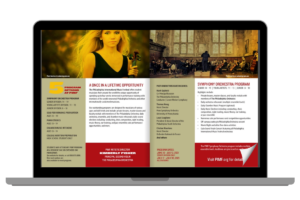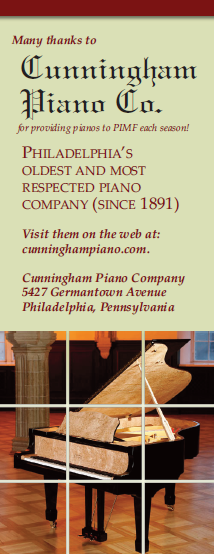Preparing for Auditions
A life in music is abounding with different sources of stress: am I prepared for my lesson? am I ready to perform this music? will I be able to play this passage in time for rehearsal next week? WILL THE CONDUCTOR SINGLE ME OUT!?
And so, so much of a life in music comes down to preparation – just 4 little syllables – and a years-long journey to get even a basic grasp of the concept.
Preparation breeds consistency. Preparation breeds confidence. Preparation is the difference between shaky and solid, between well-done and “well.. I guess that’s done..”
In this post we are going to explore preparation: what we can control, and how we can control it to our advantage. One of the most tedious, and anxiety inducing trials in music is the audition. As if it weren’t bad enough, nowadays there are so many classical musicians that sometimes you have to audition just to audition! ( pre-screen… le sigh… ) Let’s break the process down into some of its components, and explore what we can do to set ourselves up for success.
1. Timeline
Having a sense for when your deadlines are is a necessary starting place. Your plan for success should be built upon a clear timeline. Fill in the blanks:
“When is the audition?” Or in the case that you are submitting a recording digitally or by mail, then, “When does the receiving party need to receive my audition materials?”
-Once you have this information before you, you have a starting place for breaking down the steps you need to take to prepare. The timeline is the most important step to consider because it will inform all of the decisions you make: which repertoire you choose, how you prioritize the preparation of that repertoire, and what organizational steps you need to take to prepare outside of your personal practice work (things like travel plans, communication with an accompanist, reserving recording studio time, etc..)
“What is/are the required repertoire and/or materials?”
-READ THE FINE PRINT!!!! Do not get caught preparing an entire Mozart Concerto when all you need is the exposition… or even worse, don’t get caught preparing an exposition when you actually need a cadenza as well! As musicians we are rarely sweating the details – we are preoccupied with details of phrasing and nuance within every breath or bow stroke; however, it is CLASSIC classical musician to be aloof to all finer points non-music. Make a clear checklist about what is necessary for any given audition: full pieces or excerpts? with or without accompaniment? orchestral excerpts? specific ones or dealer’s choice? do I need to prepare a full CV? ( that’s Curriculum Vitae, buddy ) do I need to prepare an artist’s statement? an essay? You don’t want to get caught preparing extra repertoire or additional materials late in the game.
After you’ve answered the questions above, you are in a good place to fill out your timeline. In general, it is best to aim for being fully prepared before the day of your audition or recording. I like to go for the 80% mark – that is to say, I look at my timeline between the start of identifying my goal and the end point, and 80% of the way along toward the audition date, I aim to be fully prepared.
2. Practice
Practicing for an audition or recording can, and should, be slightly different than preparing for a lesson or a rehearsal. Consider that in a live audition setting, you will be subject to the pressure of being observed by people you don’t know, and who are very unlikely to be sporting a friendly face. Prepare yourself for these nerves by designing opportunities to play through your repertoire for family members or peers. Ask your teacher for advice about setting up mock-auditions.
Also consider that your body will be generating some serious adrenaline, which can be crippling on the technical-control front. Consider simulating this environment for yourself by closing your eyes and taking 30 seconds to mentally imagine the scenario – the waiting room, the people, the performance space, and then doing 30 seconds of jumping jacks before playing through your repertoire. Consider that your evaluator(s) may desire to hear your repertoire in a different order than you are expecting. Prepare yourself by playing through everything in different sequences.
If you are preparing for a video audition or recorded audition, don’t wait until D-Day to make your first recording. Chances are the device you are reading this blog on has a built in capacity to make sound recordings. Challenge yourself to make recordings or your repertoire, for better or for worse, the whole way through. These preliminary recordings are NO PLACE for the perfectionist in you, so take that hat off. This is only about working out the recording-stamina-muscle. These preliminary recordings are about dealing with the stress of one-shot winner-takes-all recording scenarios. Added bonus: when you listen back to the recordings, it is a guarantee that you will hear things in your playing that you don’t hear when you have your instrument in your hands. Try it!! And not just once! More like once a week!
3. The Early Bird gets the Worm!
The sooner you are prepared, the higher your ceiling will be, and the greater chance you have for a successful result. In the event that you are submitting recorded materials, aim to submit things before the deadline. This shows organizations that you are orderly and confident, and that you are capable of overcoming challenges proactively. This is a good thing… a very very good thing.
4. The End Game
As you near the date of your recording or your audition, pay extra attention to your health. Eat fruits and vegetables and cut down on the sugar and screen-time, get to bed early, drink water, yada yada yada… but seriously! All of these lifestyle components have a lot of influence on your mental health. Put yourself in position to succeed! Dedicate more of your free time to mentally reviewing your music. Think over the problem spots and do some slow visualizations of proper execution. There is a lot to be said for mental practice.
5. Put It All in Context
Remember, your worth and ability as a musician is not determined by whether or not you can pass an audition. A life in music is process driven, not results driven.
The process of preparing for and executing an audition is something you need to develop as a musician. The results of these auditions are not something over which you can develop any direct control. Let the desire for a successful result go; it is better to receive a positive result as a by product of having executed a positive process. If you can step into this perspective, you have won a major mental battle as a musician – a challenge every musician must eventually conquer.
Auditions, competitions, masterclasses – all of these alternative performance experiences are part of the music world. Embrace them for the challenging opportunities that they are, and look for whatever personal joy you can take in the process. If you set up a clear plan on a timeline, and execute that plan, you should be proud of yourself. If you don’t exactly live up to your plan, then take an optimistic stance and learn from it: where did I get off my plan? why did that happen? how could I prevent that from happening in the future?
Good luck!! errrr…. Break a leg!!




